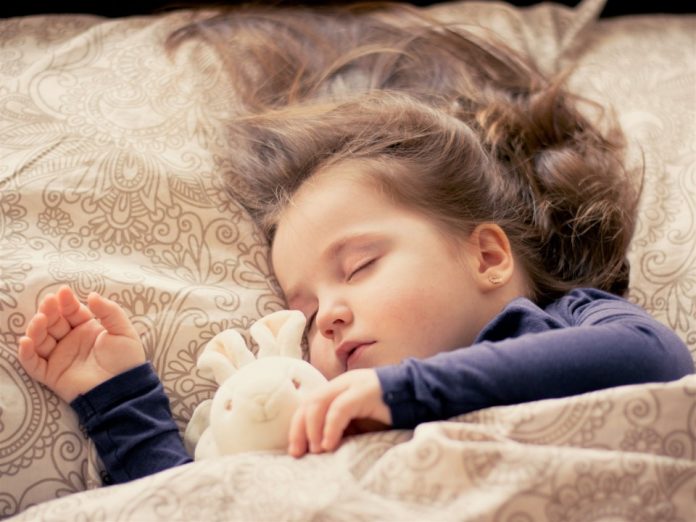Sleep gives your body, including your brain, time to repair itself and carry out important functions, like clearing out waste and releasing hormones.
Sleep is essential for good health. In fact, we need sleep to survive — just like we need food and water. So, it’s no wonder we spend about one-third of our lives sleeping.
Many biological processes happen during sleep:
The brain stores new information and gets rid of toxic waste.
Nerve cells communicate and reorganize, which supports healthy brain function.
The body repairs cells, restores energy, and releases molecules like hormones and proteins.
These processes are critical for our overall health. Without them, our bodies can’t function correctly.
Let’s take a closer look at why we sleep, along with what happens if we don’t get enough.
Why do we sleep?
A lot is still unknown about the purpose of sleep. However, it’s widely accepted that there isn’t just one explanation for why we need to sleep. It’s likely necessary for many biological reasons.
To date, scientists have found that sleep helps the body in several ways. The most prominent theoriesTrusted Source and reasons are outlined below.
Energy conservation
According to the energy conservation theory, we need sleep to conserve energy. Sleeping allows us to reduce our caloric needs by spending part of our time functioning at a lower metabolism.
This concept is backed by the way our metabolic rate drops during sleep. Research suggests that 8 hours of sleep for human beings can produce a daily energy savings of 35 percent over complete wakefulness.
The energy conservation theory of sleep suggests that a main purpose of sleep is to reduce a person’s energy use during times of the day and night, when it’s inconvenient and less efficient to hunt for food.
Cellular restoration
Another theory, called the restorative theory, says the body needs sleep to restore itself.
The idea is that sleep allows cells to repair and regrow. This is supported by many important processes that happen during sleep, including:
muscle repair
protein synthesis
tissue growth
hormone release
Brain function
The brain plasticity theory says sleep is required for brain function. Specifically, it allows your neurons, or nerve cells, to reorganize.
When you sleep, your brain’s glymphatic (waste clearance) system clears out waste from the central nervous system. It removes toxic byproducts from your brain, which build up throughout the day. This allows your brain to work well when you wake up.
Research suggests that sleep contributes to memory function by converting short-term memories into long-term memories, as well as by erasing, or forgetting, unneeded information that might otherwise clutter the nervous system.
Sleep affects many aspects of brain function, including
learning
memory
problem-solving skills
creativity
decision making
focus
concentration
Emotional well-being
Similarly, sleep is necessary for emotional health. During sleep, brain activity increases in areas that regulate emotion, thereby supporting healthy brain function and emotional stability.
Areas of the brain in which sleep increases activity include:
amygdala
striatum
hippocampus
insula
medial prefrontal cortex
One example of how sleep can help regulate emotion occurs in the amygdala. This part of the brain, located in the temporal lobe, is in charge of the fear response. It’s what controls your reaction when you face a perceived threat, like a stressful situation.
When you get enough sleep, the amygdala can respond in a more adaptive way. But if you’re sleep-deprived, the amygdala is more likely to overreact.
Research shows that sleep and mental health are intertwined. On the one hand, sleep disturbances can contribute to the onset and progression of mental health issues, but on the other hand, mental health issues can also contribute to sleep disturbances.
Weight maintenance
Sleep affects your weight by controlling hunger hormones. These hormones include ghrelin, which increases appetite, and leptin, which increases the feeling of being full after eating.
During sleep, ghrelin decreases because you’re using less energy than when you’re awake.
Lack of sleep, however, elevates ghrelin and suppresses leptin. This imbalance makes you hungrier, which may increase the risk of eating more calories and gaining weight.
Recent research shows that chronic sleep deprivation, even as few as five consecutive nights of short sleep, may be associated with increased risk of:
obesity
metabolic syndrome
type 2 diabetes
Proper insulin function
Insulin is a hormone that helps your cells use glucose, or sugar, for energy. But in insulin resistance, your cells don’t respond properly to insulin. This can lead to high blood glucose levels and, eventually, type 2 diabetes.
Sleep may protect against insulin resistance. It keeps your cells healthy so they can easily take up glucose.
The brain also uses less glucose during sleep, which helps the body regulate overall blood glucose.
Immunity
A healthy and strong immune system depends on sleep. shows that sleep deprivation can inhibit the immune response and make the body susceptible to germs.
When you sleep, your body makes cytokines, which are proteins that fight infection and inflammation. It also produces certain antibodies and immune cells. Together, these molecules prevent sickness by destroying harmful germs.
That’s why sleep is so important when you’re sick or stressed. During these times, the body needs even more immune cells and proteins.
Heart health
While the exact causes aren’t clear, scientists think sleep supports heart health. This stems from the link between heart disease and poor sleep.
The Centers for Disease Control and Prevention (CDC) says the average adult needs 7 hours of sleep a night. Getting less than that on a regular basis can lead to health problems, many of which can hurt your heart health.
Lack of sleep is associated with risk factors for heart disease, including:
high blood pressure
increased sympathetic nervous system activity
increased inflammation
elevated cortisol levels
weight gain
insulin resistance
What happens when you sleep?
Your body cycles through four stages of sleep. This cycle occurs multiple times throughout the night for different lengths of time, varying from 70 to 120 minutes each. The stages generally repeat about four to five times during a 7- to 9-hour sleep period.
The pattern includes two major phases of sleep: non-rapid eye movement (non-REM) sleep and REM (rapid eye movement) sleep. The four stages of sleep include three stages of non-REM sleep and one stage of REM sleep.
As the names suggest, non-REM sleep features an absence of eye movements, whereas REM sleep, when dreaming occurs, is characterized by rapid eye movements.
The four stages of sleep are listed below.
Stage 1: Non-REM sleep
This stage involves the light sleep just before deep sleep.
Your body temperature decreases, your eye movements stop, and your heart rate and muscles continue to relax. Your brain waves briefly spike then slow down.
During a night of sleep, you spend the most time in stage 2.
Stage 3: Non-REM sleep
In stages 3 and 4, deep sleep begins. Your eyes and muscles don’t move, and your brain waves slow down even further.
Deep sleep is restorative. Your body replenishes its energy and repairs cells, tissues, and muscles. You need this phase to feel awake and refreshed the next day.
Stage 4: REM sleep
This stage first happens about 90 minutes after you fall asleep. Your eyes move quickly from side to side during REM sleep.
In REM sleep, your brain waves and eye movements increase. Your heart rate and breathing also speed up.
Dreaming often happens during REM sleep. Your brain also processes information during this stage, making it important for learning and memory.
How much sleep do you need?
What happens if you don’t get enough sleep?
Without enough sleep, your body has a hard time functioning properly. Sleep deficiency is to chronic health problems affecting the heart, kidneys, blood, brain, and mental health.
Lack of sleep is also associated with an increased risk of injury for both adults and children. Driver drowsiness, for example, can contribute to serious car accidents and even death.
In older adults, poor sleep is associated with an increased risk of falls and broken bones.
Specific consequences of sleep deprivation can include:
mood changes
anxiety
depression
poor memory
poor focus and concentration
poor motor function
fatigue
weakened immune system
weight gain
high blood pressure
insulin resistance
chronic diseases, like diabetes and heart disease
increased risk of early death
What happens if you don’t get enough sleep?
Without enough sleep, your body has a hard time functioning properly. Sleep deficiency is to chronic health problems affecting the heart, kidneys, blood, brain, and mental health.
Lack of sleep is also associated with an increased risk of injury for both adults and children. Driver drowsiness, for example, can contribute to serious car accidents and even death.
In older adults, poor sleep is associated with an increased risk of falls and broken bones.
Specific consequences of sleep deprivation can include:
mood changes
anxiety
depression
poor memory
poor focus and concentration
poor motor function
fatigue
weakened immune system
weight gain
high blood pressure
insulin resistance
chronic diseases, like diabetes and heart disease
increased risk of early death





























